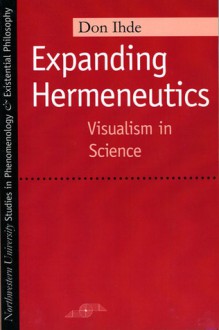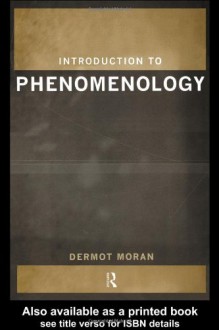 This is the single best Audible book I've ever listened to. I've tried reading "Phenomenology of Spirit" through out various times during my life, and like most people I couldn't get past the first two pages. This audio version brings magic to this perfect work of art.
This is the single best Audible book I've ever listened to. I've tried reading "Phenomenology of Spirit" through out various times during my life, and like most people I couldn't get past the first two pages. This audio version brings magic to this perfect work of art.All summaries or short commentaries on this book get it wrong. Everything you think you know about this book is probably wrong. There's no way to understand it except for actually listening (or reading) it. Forevermore, from now on I'll look askance at any statement that starts "Hegel says....".
I had just listened to "Soul Machine" by Makari (a book I liked very much, but it reads somewhat like an encyclopedia), and he ends his story with Hegel and I was intrigued by what he had to say about this book. On a lark, I decided to listened to the sample of "Phenomenology" that audible provides. I had never listened to an audio book sample before. I realized from the 3 minute and 24 second sample exactly what Hegel was trying to say and I actually understood what he was saying! I strongly recommend listening to the sample, and see if it makes sense to you.
I came to listening to philosophy by way of running out of science books and Great Course lectures. Most of the popular science books I've been listening to lately just seem to repeat themselves (or worse yet, they enter the world of Deepak Chopra's Woo Woo land).
To me, listening opens up a gateway for which reading doesn't always allow. I'm not suggesting that this book is an easy listen. It's not. Almost everyday, I take a two hour bike ride onto isolated desert roads, and I almost never could process more than an hour of this book at a time. I had to rest my mind. The reading of each paragraph number helped me immensely since I knew when a paragraph had ended and a new thought was starting. There is a strong abstract nature to this book where the author will relate an abstract to another abstract before he goes to the concrete.
There's a certain magic the author employs in his writing technique. Mathematics is the study of the changeless, and at its core it is at most a collection of items which get their meaning from the relationships which they each have with each other. This is how the author will think about the Universal of Absolute Being. It's important to realize that for the author the group of the individual species which make up the genus can only be understood from considering the genus as a whole. Or in other words, it's not the collection that gives understanding but it's the totality.
This is the exact opposite approach for which Heidegger uses in "Being and Time", he thinks understanding the parts that make up the whole provides for understanding (or using his nomenclature, gives an ontological foundation). Heidegger's book is actually my favorite book overall, but unfortunately I had to actually read it since there isn't an audio version, but there is an excellent lecture by Hubert Dreyfus freely available on Itunes. But, I like "Phenomenology" as much as I do because in the end there aren't truths but only perspectives, and Hegel gives a fabulous perspective.
I would actually suggest listening to these three Great Courses and this fictional book all available on Audible before listening to "Phenomenology". Great Courses: 1)Science Wars, 2) Philosophy of Science, and 3) Redefining Reality, and the fictional book, "The Signature of All Things", by Elizabeth Gilbert. I'd recommend the book because it's one of the best fictions I've read, and it illustrates Hegel's belief that any determination gives negation (one can paint a rose by painting everything but the rose or just as beautifully by only painting the rose and ignoring everything else).
The Great Course lectures speak loudly on the foundation of science and the nature of knowledge. Themes Hegel elaborates on significantly. Hegel's perspective is to think of our place on the "earth" (his expression) as "universal, necessary, and certain" as opposed to particular (to the data), contingent (dependent on outside factors), and probable (not certain). I recently listened to "A Beautiful Question" by Frank Wilczek, and "To Explain the World", by Steven Weinburg each a Nobel Prize Winner in physics. The first book, favors Hegel's perspective. The world is understandable as a whole (the atoms which make up our world are 'emergent properties' of the mathematics which describe them). The second book favors Heidegger, the parts that make up the whole are understandable. (Our understanding is defined by how science describes and explains based on the contingent ideas derived from particular observations).
At the time this book was written German did not have a word for 'mind' therefore any translation must take a viewpoint whether the author meant 'mind' or 'spirit'. Hegel starts the book by considering the mind within the individual, and then the spirit between individuals, and then he will go across time for both the individual and the groups (at the core of understanding for any stochastic process there are only two independent variabilities, 'within' and 'between').
When Hegel says 'objective spirit' as a thing, I took it to mean a culture with a world view. The "idle chatter', the items that make the social norms, and the items that come from outside of us, and the things that make us the they ('inauthentic' using Heidegger's word) within ourselves and between ourselves. Hegel will say the alienation we have within us and between us gives us our true knowledge.
He really seems to get Godol's incompleteness theorem (all formal systems are incomplete and have true items not provable), the Copenhagen Interruption (the measurement problem due to the wave/particle duality), Heisenberg Uncertainty Principal (knowledge of one thing means lack of knowledge elsewhere), and his teleological system is more Darwinian than not (hence it's not really teleological). Obviously, he doesn't use modern language when he describes those things, but I as a listener I read my own interruption into what the author was saying.
I noticed in the first half of the book, the author really seemed to have a wry sense of humor and sprinkled it through out the book. He'd say stuff like "it's been said in Latin and bad Latin at that" or paraphrasing 'if someone says they can tell you that you behave erratically from bumps on your head, you should box them on the ears', or 'it's like when a naughty boy gets boxed on his hears for being obnoxious, it's exactly what the boy wanted'.
I enjoyed the 6 hour commentary attached to the book. It made me realize I was understanding the book fairly closely. It's possible to be completely non-religious and be overwhelmed by the author's methodology. He'll demonstrate the problem with faith (I'd be fairly certain that Kierkegaard and his 'leap of faith' come from this book). Our duties which come from our own selfishness can lead to ethical behavior in society as a whole (the author definitely seems to embrace Mandeville and his "Fable of the Bees"). He ends the book with religion within nature and then segues quickly into the truth (certainty) of systematic science.
The book is probably not what you think it is. It is definitely not "impenetrable'. The author explains, amplifies and provides a grounding for what he is saying. There are many ways to look at and understand this book. I do it from a philosophy of science point of view. I like books that take me out of my comfort zone and open up a whole new world for me. I suggest listening to the sample and see if you get what he's saying. If you do, get this book. If not, but your still intrigued, I would suggest the lectures and book I referenced above.

 Log in with Facebook
Log in with Facebook 







